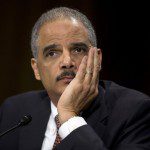Note: This is a weekend replay, republishing a piece from my Patheos column. I’ve since moved from the column to the blog, and periodically post pieces here that readers of the blog might not have seen.
The Canary in the Mineshaft
As a single leaf turns not yellow but with the silent knowledge of the whole tree, so the wrong-doer cannot do wrong without the hidden will of you all. ~ Khalil Gibran, The Prophet
My little girl is afraid of thunder, and storms come often to Georgia in the spring months. When thunder crackles and booms over the house at night, I walk into her room and invariably find her awake and hiding underneath her blanket. She asks me to lie down, so I stretch out beside her and she pulls my arm across her like a safety belt. I tell that we—sheltered, hidden, warmly enfolded—are like the little boy growing even now in her mother’s womb. She smiles, tucks her head into my chest, and drifts back to sleep.
Last week, the last time I found myself laying beside my daughter in a thunderstorm, the weight in my heart was nearly unbearable. For two weeks, I’ve been trying to begin a series on the issue of abortion. I wanted to see it with fresh eyes, to think it through again from the beginning.
This has involved reading the stories of women who have had abortions, whether they defend or regret their decision. It’s involved reading impassioned arguments from doctors who refuse to perform abortions, and from others who believe that access to safe and legal abortions saves the lives of women who will seek abortions whatever their legal status.
It’s also involved reading the Grand Jury Report on Kermit Gosnell’s horrific abortion mill, and staring for hours at wrenching pictures of fetuses dismembered in the womb and clawed from their mothers’ bodies. Wherever one stands on the moral and social questions, I am convinced, one owes it to all of those whose lives are affected by abortion to witness the whole of the issue and not cover over the parts one does not want to see.
As I look at those photos—I invite you to look at just two, here and here—the words of Khalil Gibran will not leave me alone. The combined weight of those images and those words is crushing. Of all the lovely words in The Prophet, those words especially have stayed with me, since they remind me to look first to myself and to the thousands of subtle ways in which I contribute, and passively permit, social sin and criminality.
In the last analysis, setting aside the many and complex questions that attend the abortion debate (and I will address those in later parts of this series), the essence of the matter is this: I believe the life of a child enfolded in her mother’s flesh is no less sacred than the life of my daughter hidden beneath the blanket. My moral obligations to them are not identical, because I have special responsibilities to my own children. However, in their humanity and sacred worth, the only difference between my daughter and those fetuses in the moments before they were mutilated is three years and a decision to let live.
I truly wish I could believe that the human fetus is morally insignificant, no more sacred or valuable than a tumor and thus no worse to remove from a woman’s body. Or I wish I could believe that it bore some moral value, perhaps, but not an absolute value, or not enough to outweigh consideration of the mother’s needs. I’m not eager to conclude that, in the midst of our extended national sickness, tens of millions of little ones—living human persons in every morally significant sense—have been put to death in this country under protection of law. I’m not eager to conclude that tens of millions of women have taken those lives, and tens of millions of men have encouraged, pressured, and forced them to do so. And selfishly, I’m not eager to conclude that I have done next-to-nothing to prevent all of this.
Yet I do conclude those things because I do not believe the unborn child is of lesser moral worth than the born child. This is written not with a sense of self-righteousness but with a sense of grief. How could we have done this? When did we so profoundly lose our way that we were willing, legally and politically, to sanction the theft of so many millions of innocent lives? And what have I done to protect them?
After Jared Lee Loughner attacked congresswoman Gabrielle Giffords and killed six others, many in the national media rushed to condemn the “climate of hate” permeating the Right that had, they assumed, surely influenced the gunman. While they were wrong about the specifics—Loughner was apparently uninfluenced by extreme voices on the Right—they were not wrong that the collective words and deeds of a society can create the contexts in which the specific actions of specific people arise and make sense.
Few in the national media were willing to ask about the “climate” in which Kermit Gosnell operated. Who gave him the tacit invitation to draw wailing babies from their mothers’ wombs, joke that they were large enough to walk him to the bus stop, and then take their lives and stuff their bodies into water jugs and cat-food containers? Who provided the rhetorical justification for the members of his staff to deliver viable babies into the world, leave them writhing and exposed for half an hour, even play with them, and then “snip” their spinal cords with medical scissors?
Who created that climate of callous disregard? Who defined viable pre-term infants as less worthy of care and protection than animals? Who created that ethical environment in which the good doctor and his wife could perform eighth-month abortions on Sunday nights, then go home, eat dinner, and sleep soundly?
The abortion-rights movement created that climate, to be sure, as it has pressed consistently for unlimited abortion-on-demand. Gosnell understood why he was charged with murder for a woman who died in his care, but reportedly he could not comprehend how he could be charged with murder for taking the lives of third-trimester infants. Who could blame him? Many states still have no restrictions on abortions up to the point of birth, and many more states permit third-trimester abortions for “physical or mental health” reasons so broadly defined that nearly any reason will suffice. What kind of value does that place upon the unborn child?
While Dr. Gosnell was an exception in the filthiness of his facility and the brazenness of his law-breaking, his attitude toward abortion was no aberration. It was the logical consequence of the pro-choice argument. What the pro-choice movement really means by choice is that the woman has the power to choose when the life within her matters. Since these women who sought help from Gosnell did not want their babies, no matter how old or viable they were apart from their mothers, those babies’ lives counted for nothing.
Kermit Gosnell is the canary in the mineshaft. He is the sign, for those who still needed one, that the climate is poisoned. He may also be the sign that awakens many who have fallen asleep. For we now stand, I believe, at the turning of the tide. For reasons I will explain in the next installment in this series, the fields are now ripe for a second great awakening of the pro-life movement. The sense of invincibility around legalized abortion has cracked, and for the first time in a generation it may be possible—at least with a change of President—to make substantial legal limitations to abortion with strong public support.
Children are ours to nurture and protect, to love and to guide, but they are not, even in the womb, ours to dispatch. As Gibran also writes,
Your children are not your children.
They are the sons and daughters of Life’s longing for itself.
They come through you but not from you,
And though they are with you yet they belong not to you.
The most fundamental lie in the abortion debate is that the developing child within a woman’s womb is “her body.” The little one within my wife even now is a body unto itself, an exquisite mystery, and a soul of magnificent worth. He is not her body any more than my daughter is mine. He is a human person, a precious life, rich with the image of God, an unfolding intelligence overflowing with the potential for love and creativity and hope. How can I not protect him? And how can I, if I protect him, not seek also to protect those like him who are vulnerable and endangered by this society and its climate of callous disregard?
So it is time for those of us who have let our discouragement, our despair, or our selfishness to hold us apart, to pick up the banner again and rejoin the ranks of those who never left the march. That banner is unbearable alone, because of the enormous weight of the millions of lives lost or broken by guilt and shame, and because of the weight of our own complacency and culpability as the most vulnerable and voiceless among us have been put to death.
We must bear that banner together, accepting the sacrifices it requires. We must be willing to be condemned as hateful and offensive, sexist and judgmental, foolish and backward. We must be willing to do and to endure these things for the sake of a culture that has lost its way. For men who wanted to know their sons and daughters. For men and women who live with regret and shame. For women who would never take the lives of unborn children if they had not believed a lie.
For our own souls. And for all the little ones hiding beneath the blankets.











